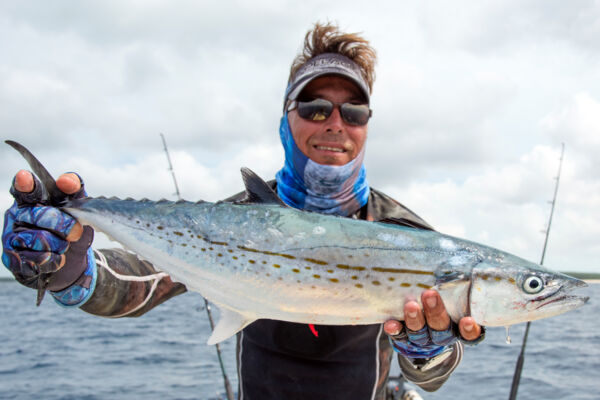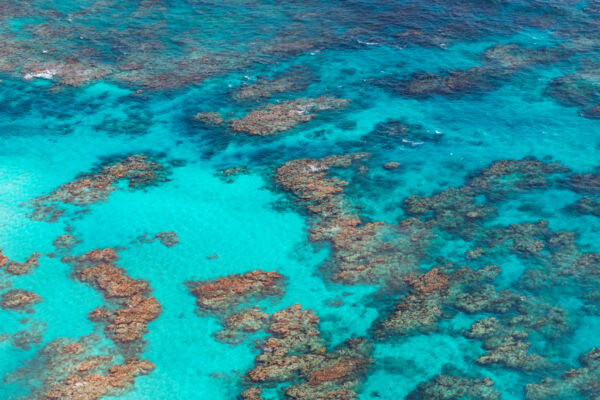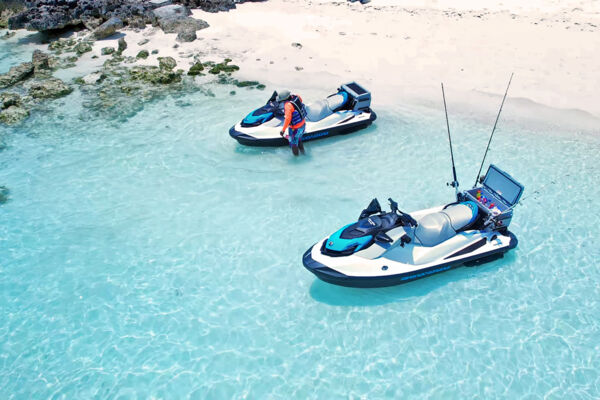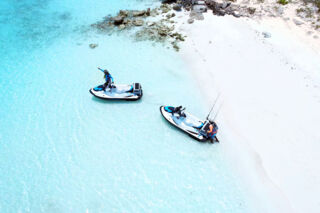Providenciales Jet Ski Fishing

Fishing via a jet ski has become popular in recent years, and for good reason, as it easily allows for access to some great spots, while being challenging and rewarding. In the Turks and Caicos, as is common elsewhere, the catch is largely dependent on the location and type of marine environment, as well as the season.
Fishing jet skis and the complementary rods and equipment is available for rent on the island of Providenciales, and guided fishing adventures are also available.
It’s important to note that in the Turks and Caicos, vessels must be registered for fishing if fishing will be conducted from the vessel, or if fishing gear is being transported on the vessel. Nearly all jet skis in the country are not registered for fishing, so for this activity it’s best to work with a company that specializes in fishing. Anglers must have a fishing license as well. Fines may be significant for violations.
Reef and Bottom Fishing
Bottom fishing with bait is perhaps the most popular type of fishing from a jet ski, and the Turks and Caicos offers some great bottom fishing opportunities. We have both complex barrier reef systems, as well as inshore reefs and coral heads, which are often quite distinct against the sandy bottom of the bays and banks.
Typically, the catch may include yellowtail snapper, schoolmaster snapper, lane snapper, mangrove snapper, red hind, and graysby. A little less common yet still a regular sight are mutton snapper, white margate, and Nassau grouper. There are definitely other groupers and snappers out there, but they are less of a common catch.
Light Tackle Trolling

Trolling with light tackle on a jet ski is a ton of fun, and the limited depth required by a jet ski and its agility allows for fishing in locations that are not ideal for larger vessels, such as either directly inside or outside the barrier reef.
It’s common to hook yellowtail snapper, bar jacks, barracuda, and mutton snapper. In the cuts and deeper areas, it’s possible to catch mackerel and sometimes kingfish.
Deep Sea Fishing
It’s definitely possible to practice a bit of deep sea fishing, at least within reason! It’s probably not wise to venture too far offshore, yet plenty of deep water is within easy access. Cero mackerel, kingfish, barracuda, skipjack tuna, and mahi-mahi, wahoo, and yellowfin tuna are possibilities.
Bonefishing and Flats Fishing
Jet skis are able to navigate the extensive shallows of the Caicos Banks and get to fishing spots that larger vessels simply can’t approach. Many of the varied and complex tidal creeks in the Caicos Islands are well under a foot (30 cm) in depth, and the significant tide lags and wind stacking that often occurs in many locations make it very conducive to a watercraft such as a jet ski, as they are able to operate at and get on plane in spots other vessels can’t.
In the flats and tidal creeks, the primary catch is bonefish, with barracuda and permit being somewhat common, and tarpon and snook as a rare possibility.
The Fishing Jet Ski

A jet ski properly set up for fishing should have a few key features. It’s best to use a vessel that’s a little larger than a simple runabout jet ski as it’ll be more stable and have space for a cooler, rods, and equipment.
Fishing Locations
When fishing from small vessels, the best location is highly dependent on the weather. In the Turks and Caicos, there’s often both localized wind chops and waves to consider, as well as a more regional ocean swell, which typically isn’t significant, yet can be at times.
Another major consideration is our protected area. We have many national parks and nature reserves where fishing is prohibited. It’s the duty of the angler to be aware of these areas, and not to violate them. Likewise, it the responsibility of those fishing to be aware of the catch and fishing license regulations and abide by them.

